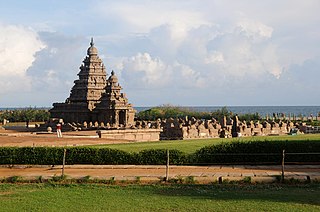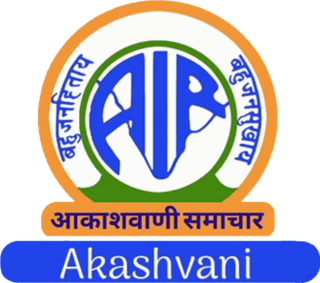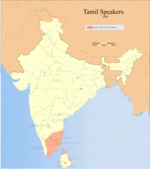
Tamil Nadu is the southernmost state of India. The tenth largest Indian state by area and the sixth largest by population, Tamil Nadu is the home of the Tamil people, who speak the Tamil language, one of the longest surviving classical languages and serves as its official language. The capital and largest city is Chennai.

Ooty, abbreviated as Udhagai) is a town and municipality in the Nilgiris district of the Indian state of Tamil Nadu, 86 km (53 mi) north west of Coimbatore, and the headquarters of the Nilgiris district. In the Nilgiri hills, it is known as the "Queen of Hill Stations" and is a popular tourist destination.

Madurai is a major city in the Indian state of Tamil Nadu. It is the cultural capital of Tamil Nadu and the administrative headquarters of Madurai District. As of the 2011 census, it was the third largest city and urban agglomeration in Tamil Nadu]]. Located on the banks of River Vaigai, Madurai has been a major settlement for two millennia and has a documented history of more than 2500 years. It is often referred to as "Thoonga Nagaram", meaning "the city that never sleeps".

The Tamil people, also known as Tamilar, Tamilians, or simply Tamils, are an ethnolinguistic group who natively speak the Tamil language and trace their ancestry mainly to India's southern state of Tamil Nadu, to the union territory of Puducherry, and to Sri Lanka. The Tamil language is one of the world's longest-surviving classical languages, with over 2000 years of Tamil literature, including the Sangam poems, which were composed between 300 BCE and 300 CE. People who speak Tamil as their mother tongue and are born in Tamil clans are considered Tamils.

All India Radio (AIR) aka Akashvani, is an Indian state-owned public radio broadcaster founded by the Government of India, owned by the Ministry of Information and Broadcasting and one of Prasar Bharati's two divisions. It was established in 1936. It is the sister service of Prasar Bharati's Doordarshan, an Indian television broadcaster. Headquartered in the Akashvani Bhavan building in New Delhi, it houses the Drama Section, the FM Section, and the National Service, and is also home to the Indian television station Doordarshan Kendra, (Delhi).

Sathyamangalam is a town and municipality in Erode district in the Indian state of Tamil Nadu. It lies on the banks of the Bhavani river, a tributary of the Cauvery in the foothills of the Western Ghats and is the headquarters of Sathyamangalam taluk. It is about 65 km from Erode, 58 km from Tiruppur and 65 km from Coimbatore. As of 2011, the town had a population of 37,816.

Gobichettipalayam is a town and municipality in Erode district of the Indian state of Tamil Nadu. It is the administrative headquarters of Gobichettipalayam taluk. It is situated at the center of the South Indian Peninsula at 213 metres (699 ft) above sea level, surrounded by Western Ghats. It is located 35 kilometres (22 mi) from the district headquarters Erode, 44 kilometres (27 mi) from Tiruppur and 80 kilometres (50 mi) from Coimbatore. Agriculture and textile industries contribute majorly to the economy of the town.

Indian Singaporeans are Singaporeans of Indian or of general South Asian ancestry. They constitute approximately 9.0% of the country's citizens, making them the third largest ancestry and ethnic group in Singapore.

Sun TV is an Indian Tamil-language general entertainment pay television channel owned by Sun TV Network. It was launched on 14 April 1993. It is the flagship channel of the Chennai-based media conglomerate Sun Group's Sun TV Network. It was founded and is owned by Kalanithi Maran.

Puthandu, also known as Tamil New Year, is the first day of year on the Tamil calendar that is traditionally celebrated as a festival by Tamils. The festival date is set with the solar cycle of the solar Hindu calendar, as the first day of the month of Chittirai. It falls on or about 14 April every year on the Gregorian calendar. The same day is observed elsewhere in South and South East Asia as the traditional new year, but it is known by other names such as Vishu in Kerala, and Vaisakhi or Baisakhi in central and northern India.

The Tamil diaspora refers to descendants of the Tamil speaking immigrants who emigrated from their native lands in the southern Indian subcontinent to other parts of the world. They are found primarily in Malaysia, Arab states of the Persian Gulf, South Africa, North America, Western Europe, and Singapore. It can be divided into two main diasporic clusters, due to geographical, historical and cultural reasons, as Indian Tamil diaspora and Sri Lankan Tamil diaspora.

A multitude of languages are used in Singapore. They consist of several varieties of languages under the families of the Austronesian, Dravidian, Indo-European and Sino-Tibetan languages. The Constitution of Singapore states that the national language of Singapore is Malay. This plays a symbolic role, as Malays are constitutionally recognised as the indigenous peoples of Singapore, and it is the government's duty to protect their language and heritage. The constitution also states that the four commonly used languages of Singapore are English, Chinese, Malay and Tamil, with the lingua franca between Singaporeans of different races being English, the de facto main language. Singaporeans often speak Singlish among themselves, an English creole arising from centuries of contact between Singapore's internationalized society and the language of its former colonisers. Linguists define it as Singapore Colloquial English.

Hindu religion and culture in Singapore can be traced to the 7th century AD, when Temasek was a trading post of Hindu-Buddhist Srivijaya empire. A millennium later, a wave of immigrants from southern India were brought to Singapore, mostly as coolies and indentured labourers by the British East India Company and colonial British Empire. As with Malay peninsula, the British administration sought to stabilise a reliable labour force in its regional plantation and trading activities; it encouraged Hindus to bring family through the kangani system of migration, settle, build temples and segregated it into a community that later became Little India.

Tamil cinema, also known as Kollywood, is the segment of Indian cinema dedicated to the production of motion pictures in the Tamil language, a widely spoken language in the state of Tamil Nadu. It is nicknamed Kollywood, a portmanteau of the names Kodambakkam, a neighbourhood in Chennai, and Hollywood. The first Tamil silent film, Keechaka Vadham, was directed by R. Nataraja Mudaliar in 1918. The first Tamil talking feature film, Kalidas, a multilingual directed by H. M. Reddy was released on 31 October 1931, less than seven months after India's first talking motion picture Alam Ara.
South Asian languages in Singapore are mainly used by the country's 348,119 Indian Singaporean residents, who form about 9.2% of Singaporean citizens and permanent residents. As a result of historical migration and settlement patterns, Indian Singaporeans came to the island from various parts of South Asia speaking a variety of South Asian languages, mostly Tamil. Today, most ethnic Indians in Singapore are locally born second, third, fourth or even fifth generation descendants of immigrant forefathers. In addition, a substantial minority are recent immigrants from the Indian subcontinent.
Remittances to India are money transfers from non-resident Indians (NRIs) employed outside the country to family, friends or relatives residing in India. India is the world's top receiver of remittances, claiming more than 12% of the world's remittances in 2015. Remittances to India stood at US$110 billion in 2022, US$125 billion in 2023 and remittances from India to other countries totalled US$5.710 billion, for a net inflow of US$63.258 billion in 2017.

Tamil Canadians, or Canadian Tamils, are Canadians of Tamil ethno-linguistic origin. Much of Canada's Tamil diaspora from India and Sri Lanka then majority consist of Sri Lankan Tamil refugees who sought to flee the ethnic tensions during the Sri Lankan Civil War between the 1970s and 2000s, while economic Tamil migrants also originate from India, Singapore and other parts of South Asia.

Overseas Indians, officially Non-Resident Indians (NRIs) and People of Indian Origin (PIOs) are Indians who reside or originate outside of India. According to the Government of India, Non-Resident Indians are citizens of India who currently are not living in India, while the term People of Indian Origin refers to people of Indian birth or ancestry who are citizens of countries other than India. Overseas Citizenship of India (OCI) is given to People of Indian Origin and to persons who are not People of Indian Origin but married to Indian citizen or People of Indian Origin. Persons with OCI status are known as Overseas Citizens of India (OCIs). The OCI status is a permanent visa for visiting India with a foreign passport.

The Tamil Nadu diaspora comprises people who have emigrated from South Indian state of Tamil Nadu, to other non-Tamil Indian states and other countries, and people of Tamil Nadu descent born or residing in other non-Tamil Indian states and other countries.















